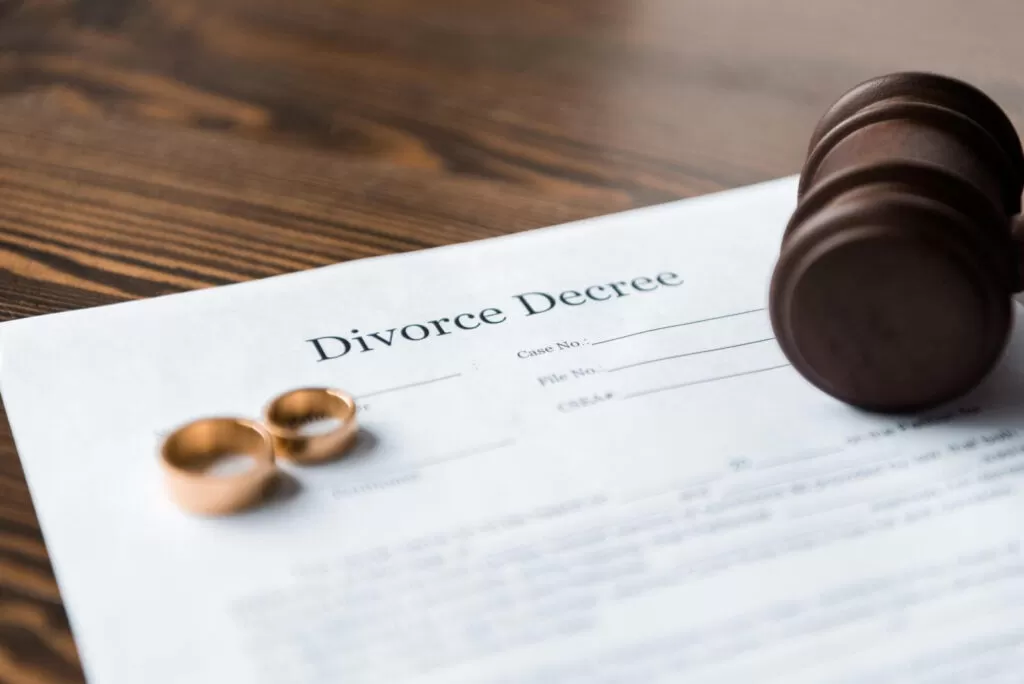Divorce Lawyer: Understanding Their Role and How to Choose the Right One

Divorce is often one of the most challenging and emotionally charged events in a person’s life. Navigating the complexities of legal proceedings, division of assets, and custody arrangements requires expert guidance. A divorce lawyer plays a crucial role in helping individuals through this difficult process. This article delves into the role of a divorce lawyer, the benefits of hiring one, and tips for selecting the right attorney to ensure that your divorce proceedings are handled efficiently and fairly.
The Role of a Divorce Lawyer
Table of Contents
Toggle1. Legal Expertise and Guidance
Divorce lawyers are specialized in family law and possess a deep understanding of the legal aspects of divorce. They provide expert guidance on the legal procedures involved, from filing for divorce to handling contested issues. Their knowledge of divorce laws, including state-specific regulations, is essential in ensuring that your case is managed correctly and that your rights are protected.
Key Responsibilities:
- Filing Legal Documents: Preparing and filing all necessary legal documents, including the divorce petition and responses.
- Legal Advice: Offering advice on your legal rights and obligations, including property division, alimony, and child custody.
2. Negotiation and Mediation
A significant part of a divorce lawyer’s role is negotiating settlements and mediating between parties. Divorce lawyers work to resolve disputes amicably, helping to reach fair agreements on asset division, spousal support, and child custody. They act as intermediaries, reducing conflict and facilitating productive discussions to achieve mutually acceptable outcomes.
Key Responsibilities:
- Settlement Negotiation: Negotiating terms of the divorce settlement, including asset distribution, alimony, and child support.
- Mediation: Facilitating mediation sessions to resolve conflicts and reach agreements outside of court.
3. Court Representation
If negotiations fail and the case goes to court, a divorce lawyer will represent you during legal proceedings. They prepare for court appearances, present evidence, and argue on your behalf. Effective representation in court is crucial for achieving a favorable outcome and ensuring that your interests are adequately defended.
Key Responsibilities:
- Court Filings: Preparing and submitting court documents, including motions and briefs.
- Trial Representation: Representing you in court, presenting evidence, and making legal arguments to support your case.
4. Emotional Support and Advice
Divorce can be an emotionally taxing experience. While a divorce lawyer is not a therapist, they provide support and guidance through the legal process, helping to manage the stress and emotional strain of divorce. They offer a practical perspective, helping you make informed decisions that are in your best interest.
Key Responsibilities:
- Emotional Support: Providing reassurance and guidance through the divorce process.
- Decision-Making: Assisting with decision-making by providing a clear understanding of legal implications.
Benefits of Hiring a Divorce Lawyer
1. Expertise in Complex Issues
Divorce cases can involve complex issues such as property division, alimony, and child custody. A divorce lawyer’s expertise ensures that these matters are handled correctly and in accordance with the law. They can navigate intricate legal scenarios and ensure that all relevant factors are considered.
2. Effective Negotiation
An experienced divorce lawyer is skilled in negotiation and mediation. They work to achieve favorable settlements and minimize conflict, which can lead to a more amicable resolution. Effective negotiation can save time, reduce legal costs, and decrease the emotional toll of prolonged disputes.
3. Legal Protection
Hiring a divorce lawyer provides legal protection and ensures that your rights are upheld. They work to prevent unfair outcomes and advocate on your behalf, safeguarding your interests throughout the divorce process. Their knowledge of legal procedures and potential pitfalls helps avoid costly mistakes.
4. Time and Stress Management
Divorce proceedings can be time-consuming and stressful. A divorce lawyer manages the legal aspects of the case, allowing you to focus on personal and emotional recovery. Their handling of paperwork, court appearances, and negotiations alleviates the burden of managing these tasks on your own.
How to Choose the Right Divorce Lawyer
1. Assess Experience and Specialization
When choosing a divorce lawyer, consider their experience and specialization in family law. An attorney with a strong track record in handling divorce cases, particularly those similar to yours, will have the expertise needed to navigate complex issues effectively.
Questions to Ask:
- Experience: How many divorce cases have you handled?
- Specialization: Do you specialize in family law and divorce?
2. Evaluate Reputation and Reviews
Research potential lawyers by reviewing their reputation and client feedback. Look for testimonials, reviews, and referrals from trusted sources. A lawyer with a positive reputation and high client satisfaction is more likely to provide competent and effective representation.
Questions to Ask:
- References: Can you provide references from past clients?
- Reviews: What do online reviews and ratings say about your practice?
3. Consider Communication and Compatibility
Effective communication is crucial for a successful attorney-client relationship. Choose a lawyer who communicates clearly, listens to your concerns, and keeps you informed throughout the process. Compatibility with your lawyer helps ensure a smooth working relationship and effective representation.
Questions to Ask:
- Communication: How often will we communicate, and what methods will be used?
- Compatibility: How comfortable do you feel discussing sensitive issues with the lawyer?
4. Understand Fees and Costs
Discuss the lawyer’s fee structure and costs upfront. Many divorce lawyers work on an hourly basis or offer flat-rate fees. Ensure you understand their billing practices, including any additional costs that may arise during the case.
Questions to Ask:
- Fee Structure: What is your fee structure, and how are costs calculated?
- Additional Costs: Are there any additional costs or fees I should be aware of?
5. Schedule Consultations
Most divorce lawyers offer initial consultations, which provide an opportunity to discuss your case and evaluate their approach. Use this meeting to assess their expertise, ask questions, and determine if they are a good fit for your needs.
Questions to Ask:
- Case Strategy: How do you plan to approach my case?
- Timeline: What is the estimated timeline for resolving my divorce?
Conclusion
A divorce lawyer plays a pivotal role in navigating the complexities of divorce proceedings, providing legal expertise, negotiation skills, and representation in court. Understanding the role of a divorce lawyer, the benefits of hiring one, and the factors to consider when choosing the right attorney can significantly impact the outcome of your divorce. By selecting a skilled and experienced lawyer, you can ensure that your interests are protected and that you receive the support and guidance needed during this challenging time. Prioritize experience, reputation, communication, and cost when making your decision to find the best divorce lawyer for your case.











Post Comment